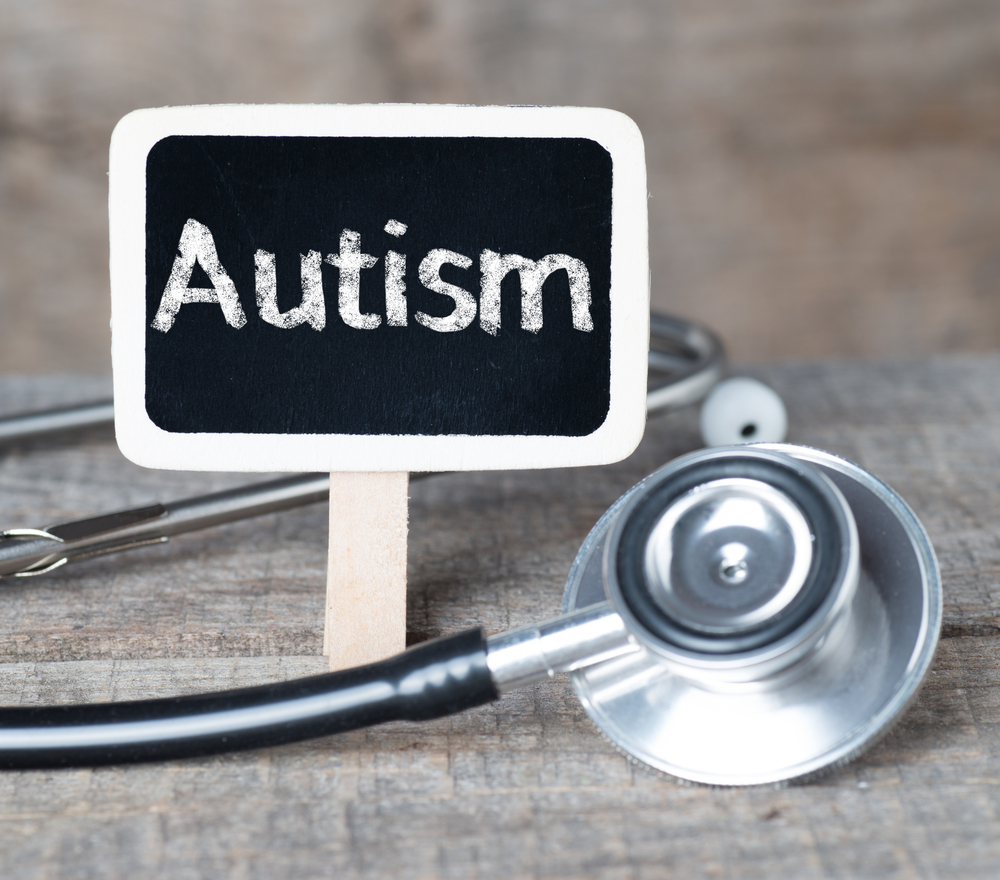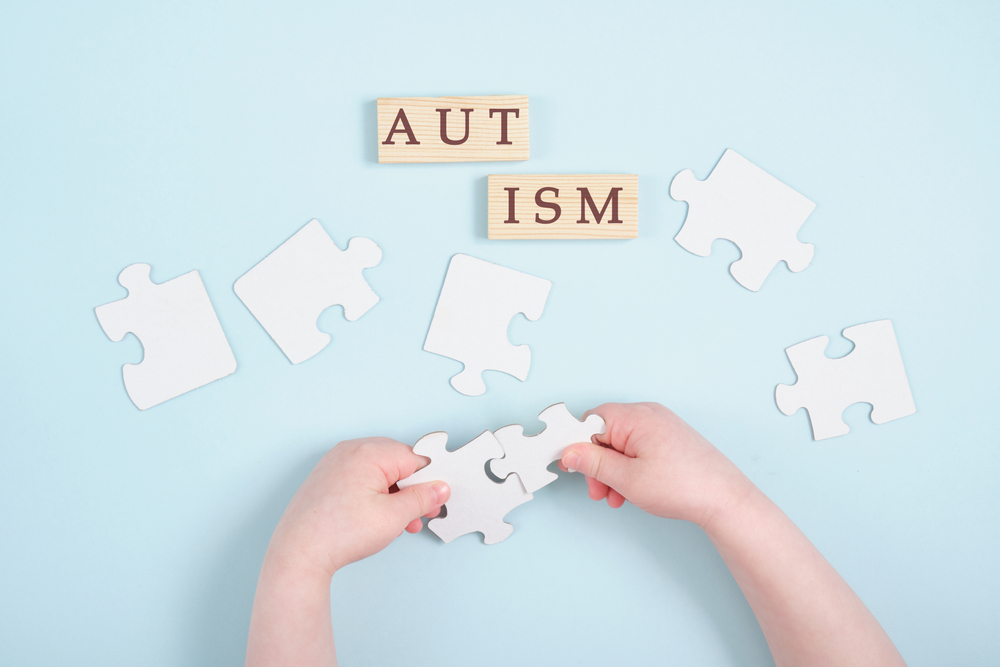The Diagnostician Said: 'Your Child Is 8, But Emotionally He Is Six Months Old'
For years, Tova Levi didn't understand why her son spoke so little, was so rigid in his habits, and seemed to enjoy repeating dangerous stunts. Until the liberating diagnosis arrived: autism.
 (Photo: Shutterstock)
(Photo: Shutterstock)The day Tova Levi received the diagnosis that her 12-year-old son Eli was on the autism spectrum, tears streamed from her eyes. But they weren't tears of sadness, they were of relief and release. "We had been through such a long suffering journey, and suddenly everything connected," she says. "Poor communication with the surroundings, attraction to danger, rigid thinking, tantrums—finally, we saw how all these behavioral patterns fell under one umbrella. I looked back on the sudden conversations he started with strangers at bus stops, the times he vanished without us knowing where he was, the anger he showed when I didn't place his food plate exactly where he wanted, and after 12 years—we finally had one name for all of it. It wasn't an easy label, but from that moment on, the path for better treatment and relationship began."
Autism, it turns out, is no longer just a severe communication disorder. "There is now a wide range of children on the spectrum," Tova explains. "On the surface, their functioning seems normal—they speak, play, learn, and essentially do what any regular child does. Still, it's impossible to ignore their unusual behavioral patterns, which significantly disrupt the flow of everyday life."
Speaks, Plays, Learns... and is Autistic
In the Levi household, these were myriad points, each seemingly unrelated. "For instance, Eli would fight for his fixed spot by the table leg, insisted on sitting right by the sofa armrest. He couldn't take off his coat at home or change clothes at all. Even from his kindergarten days, I heard about another prank he was involved in every day. Once he pulled the bench out from under his friends' feet, and another time he emptied a box of toys over a friend's head. Also, Eli could talk, but when I asked him how his day was at cheder, I never got an answer."
Sounds like a regular child, just with more difficult behavioral patterns
"Yes, and that was the difficulty with the diagnosis. However, it was clear that something wasn't right here. I had to keep a close eye on Eli constantly, to ensure he didn't disappear whenever we walked down the street, find him in the middle of the road or up a tree too high. Then there were the strange behaviors—like instances he'd start random conversations with strangers or ignore people completely. At home, things were much worse. Even at two years old, I found him sitting on the stove, and as the years passed, things only got worse. He enjoyed seeing his siblings walk with their backs, only to suddenly trip them. Once, he even wrapped a rope around his sister's neck and yanked at it."
 (Photo: shutterstock)
(Photo: shutterstock)Did you try to get a diagnosis?
"Oh, how we tried. We went to every possible diagnostic—neurologist, psychologist, psychiatrist. I spent hours filing documents. We also approached every possible therapy—art therapy, therapeutic swimming, therapeutic riding, anything you can think of. Academically, Eli was above everyone else—he would sit nicely in class and grasp all the learning material in a flash, but emotionally—there was a huge gap, and no one could pinpoint it."
A turning point came when Eli reached the age of 8. "We went to a children's drawing diagnostician, who asked Eli to draw two trees. When asked how old they were, Eli said the first was eight years old and the second was six months old. The diagnostician explained that the first tree represented Eli's intellectual age, and the second represented his emotional age, advising us to treat him as if he were an infant. He instructed me to devote myself to his care—to cradle him before bed, dress and feed him. Not to get angry if he does something wrong, for you can't get mad at a six-month-old baby. It wasn't easy managing an 8-year-old like a baby, and Eli's siblings resented the attention he got, but two weeks later, we noticed he was calmer, stopped erupting and yelling, and realized the truth in the diagnostician's words."
Eli's communication difficulties, a main feature of autism, seemed engulfed by various behaviors. "Once, Eli approached an elderly woman at a bus stop and began telling her about his day. He started from the middle of the events, as if she already knew the rest. Simultaneously, he could entirely ignore his grandmother, because of some word she said that he didn't like. Generally, he had social connections, but they were based on shared interests and lacked deep connections. Till today, there's no such thing as 'opening his heart' for him, it's not even in his world of concepts."
Additionally, Eli wasn't always able to express himself and reveal his emotions correctly, which led to unrestrained outbursts. "If I didn't make the food he wanted, Eli would react with a massive tantrum. In his mind, it was clear I knew what he wanted, so he couldn't understand why I acted differently. Generally, the communication difficulty can lead to a myriad of behaviors. An autistic child might, for example, enter a neighbor's house without anyone knowing and sit reading a book there. He is looking for an occupation and doesn't know how to express himself, so he moves immediately to action. The fact that everyone is searching for him while he sits at someone else's house without permission is beyond his understanding."
Is there a way to teach an autistic child how to communicate properly?
"Natural and flowing communication isn't possible, but you can insert some sort of 'disk' into their head that tells them how to behave in different situations. For instance, we explained to Eli that when you arrive at a wedding, you say *'Mazal Tov'* to the parents of the bride and groom, and at a Bar Mitzvah, you also say *'Mazal Tov'* to the Bar Mitzvah boy. He does it ceremoniously, and anytime something changes from the known structure, it doesn't quite work. Eli might arrive at a *Pidyon HaBen* and not understand who to talk to now. However, these 'operating instructions' are effective in many cases, and we use them as much as possible."
Next to the Table Leg
Back in childhood—with unique behaviors came fixations on specific, seemingly minor details. "Eli had to have his fixed spot by the table leg, and if on the sofa, it had to be by the arm. His siblings often resented that we gave in to him, but we already understood there was no arguing. It turns out one characteristic of autism is a constant search for a sense of stability and security, and having a fixed spot, by the table leg or the couch armrest, gave him that. In this context, I recently saw a child diagnosed with autism entering a pool with two other kids. He announced that each would have his own territory and marked the boundaries with an imaginary line. The fact that he had his private area gave him confidence, and when the others accidentally entered his zone, he reacted as if it was a life and death struggle."
The need for a sense of security manifested in other ways. "Eli couldn't enter or leave the shower," Tova recalls. "This wasn't just a regular difficulty but a world war. He wouldn't take off his coat when he came home, and changing clothes for the next day was a battle. What we didn't know then is that when a child like him removes his clothes, he's as frightened as a newborn baby whose hands suddenly fall to the sides. Inside the shower water, he feels protected, and when he gets out, the fright returns. Later, we learned to create a set of rules to give him a sense of safety, and we bought a bathrobe that enveloped him immediately as he got out of the water."
 (Photo: shutterstock)
(Photo: shutterstock)Another phenomenon present in Eli was uncompromising mental rigidity. "Back then, I'd buy 50 pitas, spread them all with chocolate, and every day pull one from the freezer for him. Any attempt to give him something else was doomed. He couldn't tolerate such a change." Eli also didn't show much willingness to take responsibility for himself. "Even though he was growing, I needed to care for him like a little child. Till this day, I'm the one who packs his bag for yeshivah. Before Elul, I asked him to buy himself a new hat, and I'm still waiting."
Finally, the most challenging point was Eli's constant brush with danger. "I couldn't take my eyes off him for even a second," Tova recalls. "There were times I couldn't sleep at night from so much worry. I was constantly checking to ensure none of my children weren't suffocating, drowned in a tub, thrown from the bed, or broke one of their limbs. I felt like my whole life was destabilizing, that instead of being a calm and happy mother, I was busy waking up and stopping him from causing harm. If only someone had explained back then that an autistic child doesn't feel danger at all. He might, for example, descend from the home balcony to the neighbors' roof, sit on its edge, and swing his legs joyfully. He might throw a heavy metal rod found on the street hard, unaware it might hurt people."
The Redeeming Moment
At this point, Tova pauses and explains why sharing her story is so vital to her. "I'm not the first, and I won't be the last mother to go through things like this, and for 12 long years, we repeatedly heard only the phrase 'emotional issues.' I felt there was something more significant here, but no diagnostician was willing to give it a chance. Twelve long years, where we exhausted our time, energy, and money almost to the end. Days without rest, and nights I couldn't sleep from sadness and worry. I wouldn't want even one more mother to go through this. Therefore, it's important to me to call upon other parents and say—if you feel something's inappropriate with your child, go check. You might find out it's not autism, and you'll know to move confidently in another direction. But if it is autism—you'll be able to help your child truly. A diagnosed child receives a monthly allowance of 3,000 NIS—a sum to which he is entitled, not without reason. This money is needed for so many treatments. Moreover, the precise definition of it is crucial to the proper treatment."
Tova's personal redemption came with the umpteenth diagnosis. "When Eli was 12, we went again, this time to a child psychiatrist. After she had met with him personally, she called us into the room and said just three words: 'Your son is autistic.' The balloon of uncertainty burst immediately, followed by the tears that flowed from my eyes. At last, we got an accurate diagnosis that shed light on the myriad of behaviors."
Today, Eli is close to 20 and studying in a regular yeshivah. "I remember the first time I spoke to the psychiatrist after the diagnosis, and she immediately said to me 'I bet you want to know if he’ll marry,'" Tova recalls. "For an autistic person, there's no interest in what happens to others and no development of deep feelings towards them. Even simple habits like showering on time or changing clothes aren't self-evident for him. If we add the outbursts that occasionally happen to him, it doesn't quite fit, and such a person can't maintain a proper marital relationship. But, she told us, you shouldn't dismiss the matter out of hand. If he wants to, we can get in touch with an appropriate place that handles such matches, lay things on the table, and proceed. We know this would require close monitoring on our part throughout his life, but if Eli wants it—we'll be there for him."
What would you suggest from your experience to parents who decide to check this direction?
"Firstly, I'd like to say that sometimes it's truly hard to see the entire picture because we're talking about behaviors, which don't seem interconnected. That's why it's important to sit down and write them one by one, even if they don't seem particularly significant. Never say 'he doesn't like showering, but that's natural' or 'he doesn't give direct eye contact, but that's out of shyness.' If those were the only issues, no one would think about seeking an autism diagnosis. But if parents feel there's more than meets the eye, then even the seemingly minor things are significant. Personally, I went to diagnoses sometimes with recordings of Eli, because a picture is worth a thousand words at times."
A painful point raised by Tova in this respect is the difficulty in accepting reality. "Sometimes parents want to repress it, because this label—autism—is heart-wrenching, nobody wishes it upon themselves. So they come for a diagnosis but understate the difficulties, hoping to hear that it isn't the direction to go. In my opinion—it's a pity, because it's better to define the situation correctly rather than suffer for years. There are private institutes nowadays, which though costly, accelerate the diagnosis process considerably. They provide answers and guidance throughout the process, eventually resulting in an accurate diagnosis. After that, the child can receive countless treatments to help him understand his surroundings, adjust to social codes, and progress alongside his peers instead of amassing social gaps. If needed, he can also receive medical treatments, which will assist him in balancing and reducing outbursts and exposure to dangers. Ultimately, only through this process can the child grow in the best way possible for him."

